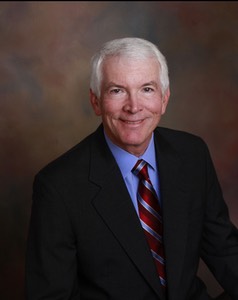Anti-Copying Software for CDs Creates Backlash from Consumers, Congressman
Monday, March 25th, 2002
Published in the Richmond Times-Dispatch
March 25, 2002
Charley Pride always has been a path breaker.
In the 1960s he became country music’s first black star and now is the only black member of the Country Music Hall of Fame. Recently he became the first U.S. recording artist to release a music CD using anti-copying software (“Charley Pride – A Tribute to Jim Reeves”).
Use of such copy protection signals a technological counterattack by the recording industry in the online music wars. The record labels are attempting to stanch the flow of music from store-bought CDs to online file-sharing networks such as Morpheus. In the process, they have gotten many CD buyers and at least one congressman mad.
It’s now commonplace for a CD purchaser to do more than just listen to the disc. The user often loads the CD onto his computer using “ripper” software.
Most new computers contain such software built-in (it’s part of Windows Media Player), or you can download free ripper software (which also contains an electronic jukebox) from sites such as Winamp, Audiograbber and Music-Match. From there, the user’s options are as boundless as the Internet.
A personal ‘radio station’
You can rip many CDs, hit the shuffle button, et voila!, you have a personal “radio station.” If you save your music in an acceptable format (usually MP3), you can load songs onto portable digital music player (iPod or Rio, for example). For those who disregard copyright laws, you can offer up your music for swap with others through download networks.
To keep music bottled up on your CD, some record companies now sporadically use software that blocks effective copying from the original CD. Several brands of anti-copying software have achieved some usage with no dominant player yet emerging – Digital Shield, SafeAudio, key2Audio and MediaCloq (pronounced “Media Cloak,” Charley Pride’s choice).
The record labels have not disclosed much information regarding their use of such software; indeed, sometimes individual CDs don’t disclose its use at all. A purchaser sued Charley Pride because his CD cover simply stated that it was “designed to play in standard CD audio players only.” The case settled with a requirement that the label contain a more detailed disclosure. To see whether a CD contains such software, check the message board at FatChucks.com.
Inserting errors
How does it work? The patent applications for such software indicate that these copy protection measures typically insert errors in the writing of the music to the CD that a conventional CD player can ignore but that a PC cannot ignore.
Such technology is only in the test-market phase, and the testing has gone poorly. Sometimes these CDs won’t play on some standard CD players or on other devices that have an ancillary ability to play music CDs, like game consoles.
But music consumers want more than bug-free playability – they want to make copies. Indeed, in an open letter to the Recording Industry Association of America, Rep. Rick Boucher, D-9th, recently questioned whether use of copy-protection software violates the federal Audio Home Recording Act.
It doesn’t. The AHRA protects individuals from copyright infringement liability if they make limited copies of purchased music for personal use. But the AHRA does not create any right to copy music.
Citing the Fair Use Doctrine
Reaching beyond the AHRA, some argue that the Fair Use Doctrine in copyright law requires music sellers to leave their products technologically available for copying. This doctrine permits some duplication of copyrighted material for purposes such as news reporting, criticism, teaching and research.
While one can debate whether ripping a CD constitutes fair use, this doctrine only shields one from copyright infringement liability. It creates no positive right to copy.
Overall, there is no such concept in our law as “copyduty” – a legal requirement that music (or any other work) be kept susceptible to copying. In fact, the opposite is true. Congress amended the copyright law in 1998 (with the Digital Millennium Copyright Act) to make it illegal to defeat the technological controls on software.
Proposed changes
This law may change. Boucher plans to submit a bill amending it to make it lawful to defeat anti-copying software for the purpose of making legal copies, such as copies protected by the Fair Use Doctrine. Such an amendment would take the law out of the technological battle between music producers and music-hungry geeks.
Even if Boucher’s bill fails, the marketplace may force the same result. Hackers will find ways to rip CDs despite copy protection software. Violating the Digital Millennium Copyright Act won’t deter them because such folks already engage in massive copyright infringement through use of online file-sharing services.
To respond, the music industry is fiddling with “digital rights management” software, which would allow some copying and transferring of music files while blocking unlimited dissemination. The industry faces a challenge, though, because unprotected music always will leak out somewhere, and it’s tough to beat free.
By John B. Farmer
© 2002 Leading-Edge Law Group, PLC. All rights reserved.




